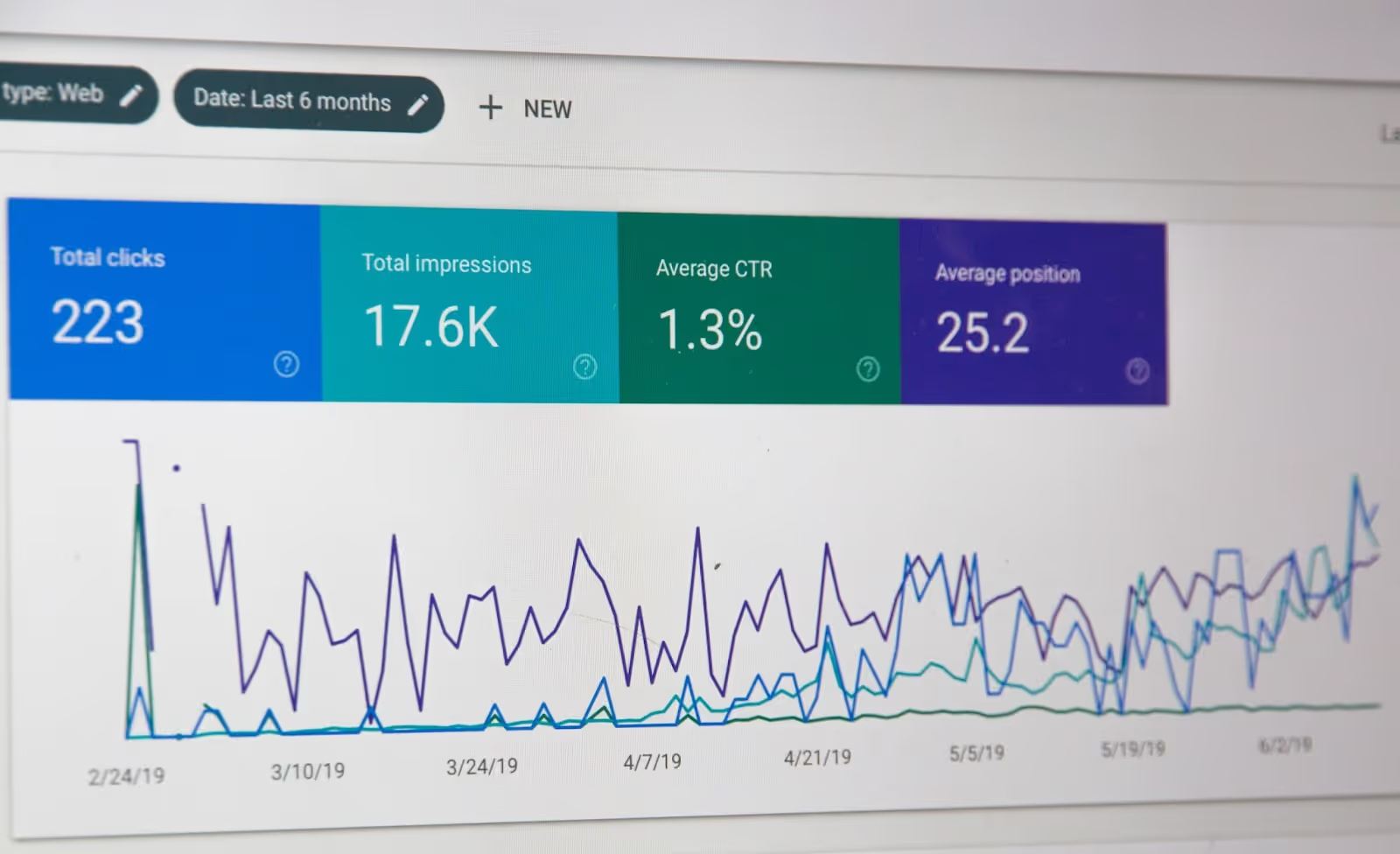4 Tips on How to Determine and Set the SEO Goals Best Suited to Your Business
4 Tips on How to Determine and Set the SEO Goals Best Suited to Your Business

SEO - or search engine optimization - is an essential part of any marketing campaign. Perhaps you’re exploring SaaS content marketing for your software business? If so, you’ll need good SEO so people can find your content. Or maybe you’re trying to implement influencer marketing? The backlinks between you and your influencer’s websites could have huge benefits.
However, there are a lot of different methods for securing better search rankings, so “good SEO” can actually be a pretty vague term. This means that making a plan is essential, and the first step should be to set some SEO goals for your business.
A lot goes into selecting these: you’ll need to define what good SEO means for your business, find out which goals are a priority, and work out how you’re going to achieve them.
With all that in mind, even developing a plan can be a bit intimidating, but we’re here to help. We’ve provided some tips below to help you determine the right SEO goals for your business.
1. Ask the right questions
The first step in setting SEO goals is simple: take the time to ask yourself a few questions about your business and your current search engine results page - or SERP - rankings. It’s these rankings you’re looking to improve via SEO. There’s a lot of potential questions you can ask, but we’ll provide three good examples here.
What does good SEO mean?
First, consider ‘what does good SEO mean for my business?’ “Good SEO” is a vague term, so you need to specify. Does good SEO mean more backlinks? Does it mean restructuring your website? This connects heavily to deciding your methods, which we’ll address in more detail below.
Where am I with SEO?
Secondly, think about where you are right now with SEO. Are you on top of the SERPs for all the keyword searches you want to be ranking forand looking to maintain your SEO quality or are you just starting out? This question helps identify what you’ll need to improve on and by how much.
This second question should also encourage you to think about how much time you’re giving yourself to achieve goals. When setting up these timeframes, consider using integrated calendar software to mark down all relevant dates. This will make deadlines visible to employees. A good calendar app can provide periodic reminders so the scheduled meeting doesn't slip your mind.
How can I achieve my goals?
Thirdly, ask yourself how you’re going to achieve your goals. You should consider this before you even have a concrete goal in mind - it’s important to take stock of your resources before embarking on a project. Consider the skills of your team and what kind of software, hardware, and monetary budget you’re going to allocate to SEO.
Remember, if you work in a team, you should bounce ideas around before finalizing your goals. If you’re still figuring out what questions to ask, discuss the subject with your peers. Remote working can be an obstacle here, but any good video conferencing solution for small business will provide a convenient means of communication.
2. Consider what you’ve achieved already
To define your SEO goals, you need to consider what success is. This means re-examining old goals and the progress you’ve made with SEO so far. This stage of the planning process can be done at any point, but we recommend doing it early. It’s very similar to our first tip - “Ask the right questions” - but with a key difference: measuring your previous success will require more analytics.

There are two main ways to do this analysis, and the method you pick should be based on how long your business has existed. If you operate a long-running endeavor, analyze your progress and what you’ve achieved before now in your SEO journey. Use software tools to gauge your current level of SEO and set a feasible goal for how much you’d like to improve.
If you’re just starting with your online business, you probably don’t have much you can look back on. In this instance, try analyzing your competition rather than your own SEO. You may not be able to glean as much in-depth information, but there are many software tools available that can help you work out what works and what doesn’t.
If you’re using competitors to measure success, make sure you pick ones that are similar to you. If your company sells phone systems for small businesses, compare your SEO statistics with those of a business that also sells phone systems as opposed to a generic software provider. This will make the comparison more relevant and meaningful.
3. Work out your priorities
Once you’ve answered your questions, you’ll have an idea of the goals you want to achieve. Next, organize these in order of importance. It might be your plan has smaller goals that lead to a bigger goal, so factor this into your priorities.
For instance, say your main goal is becoming the top-ranked result on the SERP for a particular keyword relating to your business. You also want to restructure your website for SEO and complete some keyword research.
The priority task should be keyword research. This isn’t necessarily because it’s the most important - though it is an essential part of improving SEO - but because it factors heavily into the other two goals. Completing keyword research will help you decide how to improve your website SEO, and improving your website SEO will improve your ranking on the SERP.

You should think of becoming the top search result as a long-term goal, but it should not be prioritized. Not that it isn’t pertinent or shouldn’t be kept in mind - the issue is the goal is harder to achieve and will take more time.
When you’re prioritizing goals, make sure SEO isn’t the only thing you focus on. If your company is in dire need of a customer data platform, virtual onboarding plan, or some other technical, high-effort project, you may want to put SEO to one side while the other project is completed.
Also, if you work as part of a department focused on SEO, make sure all relevant employees are aware of which goals you’re prioritizing. This can be tougher in a remote working environment, so you might want to check some tips on how to manage a remote team. There’s no point in organizing goals by priority if employees are unaware of this.
4. Think about your methodology
Once your goals are decided and prioritized, work out how you’re going to achieve them, for example, the tactics you’re going to employ and resources you’re going to allocate to the project.
This may seem like something you’d do after establishing your goals, but in reality, these can change considerably once you start thinking about methods. It may be you don’t have the expertise to achieve a particular goal, so you need to set your sights lower and use methods you’re more familiar with.

A key aspect to consider at this stage is time. If you don’t set a deadline, it’s harder to focus on your SEO goals. However, the amount of time you’ve given yourself can change your methods considerably.
Furthermore, SEO tactics will differ depending on how you’ve built your website. For instance, SEO best practices for Wix sites differ from those of WordPress sites.
Keyword research, which we mentioned previously, should be the first step in a lot of your methods. Remember keywords are all about relevance. When someone searches “what is a stand up meeting”, the search engine will tend to focus on “stand up meeting” as the relevant term. Therefore, if you’re trying to improve your SERP rank for that search, “stand up meeting” is the key phrase you should target.
Another core part of SEO tactics is content creation. A good example of this would be creating content that integrates the results of your keyword research. Whatever the methods you end up using, you mustn’t skip this planning stage. The more you plan and the more thought you put into SEO, the easier it will be to achieve your goals.
Why focus on SEO goals?
As we mentioned in our previous “Work out your priorities” section, SEO is just one facet of running a successful business. Good SEO is a valuable thing to have, but so is being able to provide exceptional customer service or having a great product or service to sell.
However, SEO is vital because it’s one of the best ways of getting people to come to you. Great customer service and great products are important, but they’re useless without a strong customer base.
SEO generates online customers to your website, which helps to grow your business. So, the next time you’re planning out what you’d like to achieve, don’t forget to factor in SEO goals as a driver to help you get there.
Take the faster path to growth. Get Smith.ai today.
Key Areas to Explore

Your submission has been received!














.svg)



